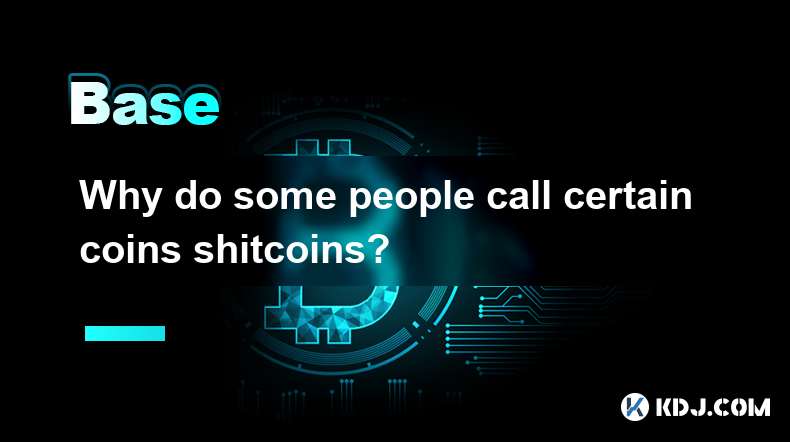-
 Bitcoin
Bitcoin $83,761.5162
-0.79% -
 Ethereum
Ethereum $1,560.7768
-3.36% -
 Tether USDt
Tether USDt $0.9999
0.00% -
 XRP
XRP $2.0759
-1.95% -
 BNB
BNB $581.4168
-0.36% -
 Solana
Solana $127.0879
-0.76% -
 USDC
USDC $0.9999
-0.01% -
 TRON
TRON $0.2514
0.39% -
 Dogecoin
Dogecoin $0.1530
-1.63% -
 Cardano
Cardano $0.6047
-2.55% -
 UNUS SED LEO
UNUS SED LEO $9.4090
0.50% -
 Chainlink
Chainlink $12.1339
-1.88% -
 Avalanche
Avalanche $18.7533
-3.95% -
 Stellar
Stellar $0.2341
-1.77% -
 Toncoin
Toncoin $2.8633
-2.76% -
 Shiba Inu
Shiba Inu $0.0...01164
-1.57% -
 Sui
Sui $2.0688
-2.49% -
 Hedera
Hedera $0.1558
-2.40% -
 Bitcoin Cash
Bitcoin Cash $317.7189
-2.09% -
 Litecoin
Litecoin $74.4413
-1.09% -
 Polkadot
Polkadot $3.5267
-1.73% -
 Dai
Dai $1.0001
0.01% -
 Hyperliquid
Hyperliquid $15.5553
1.26% -
 Bitget Token
Bitget Token $4.3098
0.23% -
 Ethena USDe
Ethena USDe $0.9993
0.02% -
 Pi
Pi $0.5992
-10.38% -
 Monero
Monero $216.3755
0.29% -
 Uniswap
Uniswap $5.0904
-3.03% -
 OKB
OKB $51.4466
0.63% -
 Pepe
Pepe $0.0...07118
1.06%
What is homomorphic encryption and its application scenarios?
Homomorphic encryption enables secure data processing in cryptocurrencies, allowing privacy-preserving transactions and confidential smart contracts.
Apr 07, 2025 at 10:35 pm

Homomorphic encryption is a form of encryption that allows computations to be performed on encrypted data without decrypting it first. This means that sensitive data can remain secure even while it is being processed, making it an invaluable tool in the realm of cryptocurrencies and blockchain technology. In this article, we will explore the concept of homomorphic encryption, its types, and its various application scenarios within the cryptocurrency circle.
Understanding Homomorphic Encryption
Homomorphic encryption is a cryptographic technique that enables data to be manipulated and analyzed while still in an encrypted state. This is particularly useful in scenarios where data privacy is paramount, as it allows for the processing of sensitive information without exposing it to potential breaches. There are three main types of homomorphic encryption: Partially Homomorphic Encryption (PHE), Somewhat Homomorphic Encryption (SHE), and Fully Homomorphic Encryption (FHE).
Partially Homomorphic Encryption allows for an unlimited number of operations of a single type (either addition or multiplication) on encrypted data. For example, the Paillier cryptosystem is a well-known PHE scheme that supports unlimited additions but only a limited number of multiplications.
Somewhat Homomorphic Encryption supports both addition and multiplication but only up to a certain complexity level. After a certain number of operations, the noise in the ciphertext grows too large, and the data becomes unusable.
Fully Homomorphic Encryption is the most advanced form, allowing for an unlimited number of both addition and multiplication operations on encrypted data. This type of encryption is still in the early stages of development and is not yet widely used due to its computational complexity.
Application Scenarios in Cryptocurrencies
Homomorphic encryption has several potential applications within the cryptocurrency ecosystem, particularly in areas where data privacy and security are critical.
Secure Multi-Party Computation
In the context of cryptocurrencies, secure multi-party computation (SMPC) is a technique that allows multiple parties to jointly perform computations on their private data without revealing their inputs to each other. Homomorphic encryption can be used to enhance SMPC by allowing computations to be performed on encrypted data. For instance, in a decentralized finance (DeFi) application, multiple parties might need to compute a shared value without revealing their individual contributions. Homomorphic encryption ensures that these computations can be done securely.
Privacy-Preserving Transactions
Privacy-preserving transactions are another area where homomorphic encryption can be beneficial. In cryptocurrencies like Bitcoin and Ethereum, transaction details are often visible on the blockchain, which can compromise user privacy. By using homomorphic encryption, it is possible to process transactions in a way that keeps the details encrypted, thus maintaining user privacy. For example, a user could encrypt their transaction amount and recipient address, and the network could process the transaction without ever seeing the actual data.
Confidential Smart Contracts
Confidential smart contracts are smart contracts that execute on encrypted data. This is particularly useful in scenarios where the contract's logic needs to remain private, such as in financial agreements or supply chain management. Homomorphic encryption allows the smart contract to perform operations on encrypted data, ensuring that the contract's execution remains confidential. For instance, a smart contract could be used to calculate interest on a loan without revealing the principal amount or the interest rate to the public.
Data Analytics on Encrypted Data
In the cryptocurrency space, data analytics on encrypted data can be crucial for businesses and organizations that need to analyze user behavior or transaction patterns without compromising user privacy. Homomorphic encryption enables these entities to perform complex data analytics on encrypted datasets, such as analyzing trading patterns or detecting fraudulent activities, without ever decrypting the data. This can be particularly useful for exchanges and other platforms that handle large volumes of sensitive data.
Implementing Homomorphic Encryption in Cryptocurrencies
Implementing homomorphic encryption in a cryptocurrency system involves several steps and considerations. Here is a detailed guide on how to integrate homomorphic encryption into a cryptocurrency platform:
Choose the Right Encryption Scheme: Depending on the specific needs of your platform, you may choose PHE, SHE, or FHE. For most current applications, PHE or SHE might be sufficient due to their lower computational overhead.
Integrate the Encryption Library: Select a reliable homomorphic encryption library that supports your chosen scheme. Libraries such as Microsoft SEAL or IBM HElib are popular choices.
Encrypt Data Before Processing: Before any data is processed or stored on the blockchain, it must be encrypted using the chosen homomorphic encryption scheme. This can be done at the user's end or by a trusted intermediary.
Perform Computations on Encrypted Data: Use the homomorphic properties of the encryption scheme to perform necessary computations. For example, if you are using PHE, you might perform additions on encrypted transaction amounts.
Decrypt Results When Necessary: Once the computations are complete, the results can be decrypted by authorized parties. This step should be carefully managed to ensure that only those with the necessary keys can access the decrypted data.
Test and Validate: Thoroughly test the implementation to ensure that it works as expected and that the encrypted data remains secure throughout the process. Validation should include both functional testing and security audits.
Challenges and Considerations
While homomorphic encryption offers significant benefits, there are also several challenges and considerations to keep in mind when implementing it in a cryptocurrency system.
Computational Overhead: Homomorphic encryption, especially FHE, can be computationally intensive. This can lead to slower transaction processing times and higher resource requirements, which may not be suitable for all cryptocurrency platforms.
Key Management: Managing encryption keys securely is crucial. If keys are compromised, the entire system's security can be at risk. Implementing robust key management systems is essential to protect the integrity of the encrypted data.
Scalability: As the number of transactions and users grows, the scalability of homomorphic encryption becomes a concern. Ensuring that the system can handle increased load without compromising performance is a significant challenge.
Interoperability: Different cryptocurrency platforms may use different encryption schemes, which can complicate interoperability. Ensuring that encrypted data can be processed across different systems is an important consideration.
Real-World Examples
Several projects within the cryptocurrency space are already exploring the use of homomorphic encryption. Here are a few notable examples:
Zcash: Zcash uses a form of zero-knowledge proofs, which can be seen as a related concept to homomorphic encryption. While not directly using homomorphic encryption, Zcash's privacy features are designed to protect transaction details, similar to what homomorphic encryption aims to achieve.
Enigma: Enigma is a decentralized computation platform that uses homomorphic encryption to enable secure and private data processing. It allows users to perform computations on encrypted data, which can be particularly useful for privacy-preserving applications in the cryptocurrency space.
NuCypher: NuCypher is a decentralized key management system that uses homomorphic encryption to enable secure data sharing and access control. It allows users to encrypt data and share it with others without revealing the underlying information.
Frequently Asked Questions
Q: Can homomorphic encryption be used to protect wallet private keys?
A: While homomorphic encryption can be used to process encrypted data, it is not typically used to protect wallet private keys directly. Private keys are usually secured using other cryptographic methods like elliptic curve cryptography. However, homomorphic encryption could be used to perform operations on encrypted data related to wallet management, such as calculating balances or transaction amounts without exposing the actual values.
Q: Is homomorphic encryption compatible with all blockchain platforms?
A: Homomorphic encryption can be integrated into various blockchain platforms, but compatibility depends on the specific implementation and the capabilities of the platform. Some platforms may have built-in support for homomorphic encryption, while others may require custom development to integrate it effectively.
Q: How does homomorphic encryption affect the performance of a cryptocurrency network?
A: Homomorphic encryption can significantly impact the performance of a cryptocurrency network due to its computational overhead. Transactions and operations on encrypted data may take longer to process, and the network may require more resources to handle the increased computational load. However, advancements in homomorphic encryption algorithms and hardware acceleration can help mitigate these performance issues.
Q: Are there any regulatory considerations when using homomorphic encryption in cryptocurrencies?
A: Regulatory considerations for using homomorphic encryption in cryptocurrencies can vary by jurisdiction. Some regions may have specific data protection laws that encourage or require the use of advanced encryption techniques like homomorphic encryption. However, the use of such technologies must also comply with any applicable regulations regarding financial transactions and data privacy. It is important to consult with legal experts to ensure compliance with all relevant laws and regulations.
Disclaimer:info@kdj.com
The information provided is not trading advice. kdj.com does not assume any responsibility for any investments made based on the information provided in this article. Cryptocurrencies are highly volatile and it is highly recommended that you invest with caution after thorough research!
If you believe that the content used on this website infringes your copyright, please contact us immediately (info@kdj.com) and we will delete it promptly.
- VeChain (VET) Has Secured the Coveted MiCAR License, Opening Up Operations Across Europe
- 2025-04-17 02:35:13
- Ethereum (ETH) Derivative Markets See Another Big Accumulation Ahead of the Expected Volatility
- 2025-04-17 02:35:13
- Chainlink (LINK) Emerges as the Most Valuable Blockchain Infrastructure Project, Reaching $12.7B FDV
- 2025-04-17 02:30:13
- Is Bittensor (TAO) Worth a $1,000 Bet Right Now? Here's What the Chart Says
- 2025-04-17 02:30:13
- Bitcoin (BTC) Price Slides 23% From Its January All-Time High
- 2025-04-17 02:25:13
- Bitcoin (BTC) Price Hasn't Cleared Volatility, as Gold Soars to Another ATH
- 2025-04-17 02:25:13
Related knowledge

What does Floor Price mean in the NFT market
Apr 17,2025 at 12:42am
The term Floor Price is a critical concept within the NFT (Non-Fungible Token) market, serving as a key indicator for both buyers and sellers. In essence, the floor price represents the lowest price at which an NFT from a particular collection is currently listed for sale on a marketplace. This price point is crucial for understanding the perceived valu...

What is Alpha? How to find Alpha opportunities?
Apr 16,2025 at 12:42pm
What is Alpha?Alpha is a term widely used in the financial world, including the cryptocurrency market, to describe the ability of an investment to outperform a benchmark. In the context of cryptocurrencies, alpha refers to the excess return an investor achieves over the market's average return. For example, if the overall crypto market grows by 10% in a...

Why do cryptocurrency enthusiasts like to say GM?
Apr 16,2025 at 06:21am
In the world of cryptocurrency, the term 'GM' has become a popular greeting among enthusiasts. GM stands for 'Good Morning,' and its widespread use within the crypto community has a deeper significance than just a simple greeting. This article delves into the reasons why cryptocurrency enthusiasts like to say GM, exploring its origins, cultural signific...

What do WAGMI and NGMI mean?
Apr 16,2025 at 08:08pm
In the world of cryptocurrency, you might often come across the acronyms WAGMI and NGMI. These terms have become part of the crypto slang and are frequently used in discussions, tweets, and forums related to digital currencies. Let's delve into what these terms mean, their origins, and how they are used within the crypto community. Understanding WAGMIWA...

What are Diamond Hands and Paper Hands?
Apr 16,2025 at 10:42am
In the world of cryptocurrencies, the terms Diamond Hands and Paper Hands are frequently used to describe the behavior and mindset of investors, particularly in volatile markets. These terms originated from online communities and have become a significant part of the crypto lexicon, often used to describe the level of resilience and commitment an invest...

Why do some people call certain coins shitcoins?
Apr 17,2025 at 03:21am
Understanding the Term 'Shitcoin'The term 'shitcoin' is a colloquialism within the cryptocurrency community that is used to describe cryptocurrencies that are perceived as having little to no value or potential. It is a derogatory term, often used to express disdain or skepticism about the viability of certain digital assets. The use of 'shitcoin' is su...

What does Floor Price mean in the NFT market
Apr 17,2025 at 12:42am
The term Floor Price is a critical concept within the NFT (Non-Fungible Token) market, serving as a key indicator for both buyers and sellers. In essence, the floor price represents the lowest price at which an NFT from a particular collection is currently listed for sale on a marketplace. This price point is crucial for understanding the perceived valu...

What is Alpha? How to find Alpha opportunities?
Apr 16,2025 at 12:42pm
What is Alpha?Alpha is a term widely used in the financial world, including the cryptocurrency market, to describe the ability of an investment to outperform a benchmark. In the context of cryptocurrencies, alpha refers to the excess return an investor achieves over the market's average return. For example, if the overall crypto market grows by 10% in a...

Why do cryptocurrency enthusiasts like to say GM?
Apr 16,2025 at 06:21am
In the world of cryptocurrency, the term 'GM' has become a popular greeting among enthusiasts. GM stands for 'Good Morning,' and its widespread use within the crypto community has a deeper significance than just a simple greeting. This article delves into the reasons why cryptocurrency enthusiasts like to say GM, exploring its origins, cultural signific...

What do WAGMI and NGMI mean?
Apr 16,2025 at 08:08pm
In the world of cryptocurrency, you might often come across the acronyms WAGMI and NGMI. These terms have become part of the crypto slang and are frequently used in discussions, tweets, and forums related to digital currencies. Let's delve into what these terms mean, their origins, and how they are used within the crypto community. Understanding WAGMIWA...

What are Diamond Hands and Paper Hands?
Apr 16,2025 at 10:42am
In the world of cryptocurrencies, the terms Diamond Hands and Paper Hands are frequently used to describe the behavior and mindset of investors, particularly in volatile markets. These terms originated from online communities and have become a significant part of the crypto lexicon, often used to describe the level of resilience and commitment an invest...

Why do some people call certain coins shitcoins?
Apr 17,2025 at 03:21am
Understanding the Term 'Shitcoin'The term 'shitcoin' is a colloquialism within the cryptocurrency community that is used to describe cryptocurrencies that are perceived as having little to no value or potential. It is a derogatory term, often used to express disdain or skepticism about the viability of certain digital assets. The use of 'shitcoin' is su...
See all articles























































































